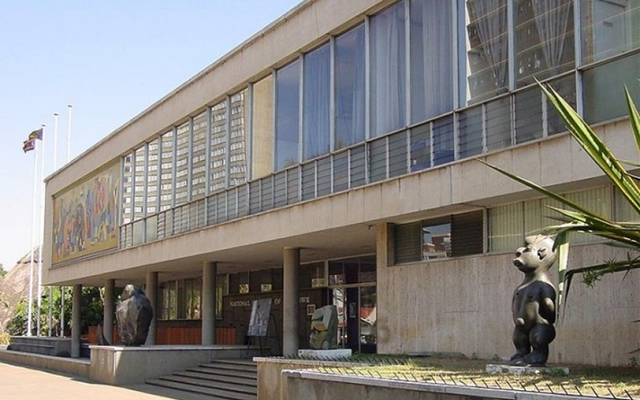Gallery library celebrates success

The National Gallery of Zimbabwe Thomas Meikle Library will tomorrow be presenting its success in implementing an Information Technology Resource Centre that is currently providing much needed information in the Zimbabwean arts sector to the people. This vision was made possible through the sponsorship from the Culture Fund of Zimbabwe Trust in collaboration with the Sweden and Denmark investments to Zimbabwean Arts, Culture and Heritage.
The project aimed at strengthening the National Gallery of Zimbabwe to be the leader in information and knowledge provision on Zimbabwean visual art and design and it was a success.
Through the funds, the NGZ Thomas Meikle Library managed to purchase eight computers for use by the library users, a printer, a scanner and a photocopier.
Users are now able to subscribe to online access to art resources through digitisation and licensing arrangements and to simplify resource discovery and access to materials, regardless of location or ownership.
“The Gallery would like to thank the Culture Fund of Zimbabwe Trust for its support towards this project,” said Mr Joseph Fushai, the Librarian at the National Gallery of Zimbabwe Thomas Meikle Library. “The equipment acquired has been installed and is in use. Cataloguing of books and scanning of archival materials is in progress.
“The physical layout of the library has been changed to accommodate the new equipment, which is a positive development.”
He added that: “One notable change is in staff morale. The intervention has inspired staff for they can see and feel changes in the way they work, new ways of working resulting in satisfaction and commitment. Changes to the physical layout of the library have already attracted positive comments from visitors. The library is more open, attractive and welcoming.”
The National Gallery Library is the only art library in Zimbabwe, catering for all the art students in schools, colleges and universities. The fast developing information and communication technologies continue to pose challenges on how best libraries can document and disseminate knowledge to a globally dynamic knowledge base.
Therefore, the NGZ Thomas Meikle Library managed to exploit the advantages of a digital library which enables provision of online library services with e-books and e-journals readily available thereby improving general access to information.
At the moment, the library is subscribing to periodicals and other technical materials resulting in students, artists, staff and other information seekers having access to innovations made outside their domain. There is availability of local materials in print and electronic format which is relevant to the arts sector and to the Zimbabwean context.
The library was established in 1957 and developed with the assistance of the Thomas Meikle Foundation from which it derives its name.
Its main aim is to provide research and general interest facilities and at the same time, preserve and conserve published works for the education of present and future generations of Zimbabwe. It offers a collection of art books, journals with issues running from 1962 to 2010, assistance with access, discovery and use of local and external information resources and also preservation of collections and resources.
It is also a hospitable physical and virtual environment for study, research and learning and a link to latest book lists and relevant publications.
The Library is open to people interested in the visual arts who include artists, college and university students, teachers and lecturers, researchers and media practitioners among others.
The Culture Fund of Zimbabwe Trust is an organisation working within Zimbabwean society seeking to provide financial and technical support to cultural practitioners, institutions and activities with the ultimate aim of contributing to the development of the culture and creative sectors and the generation of wealth in Zimbabwe. The Fund works within society as an enabler, an endorser of ideas as well as a creative energy conveyor that feeds into creative economy development, community empowerment, promotion and empowerment of marginalised groups, promotion of social cohesion, education and self-expression.










Comments